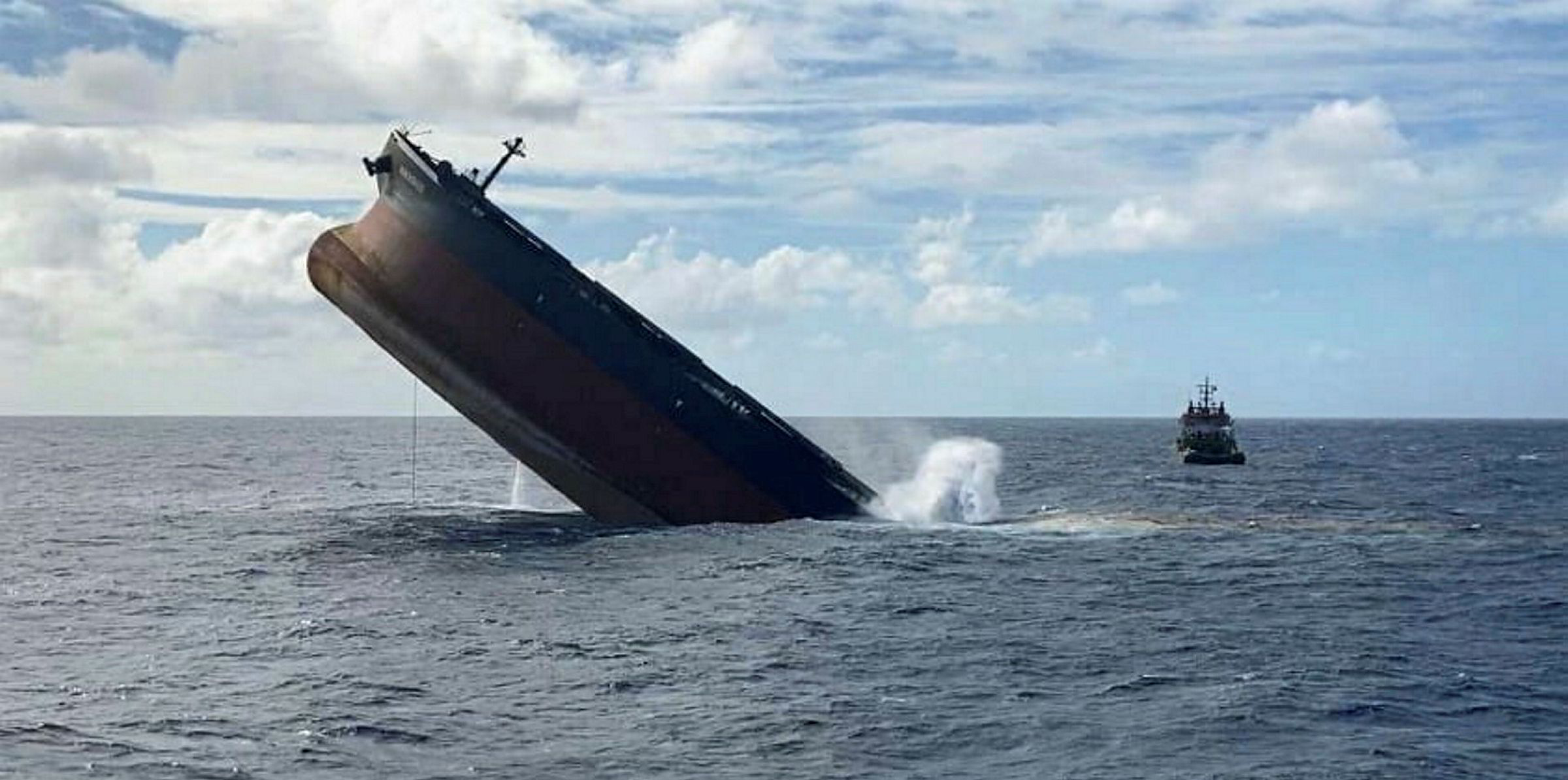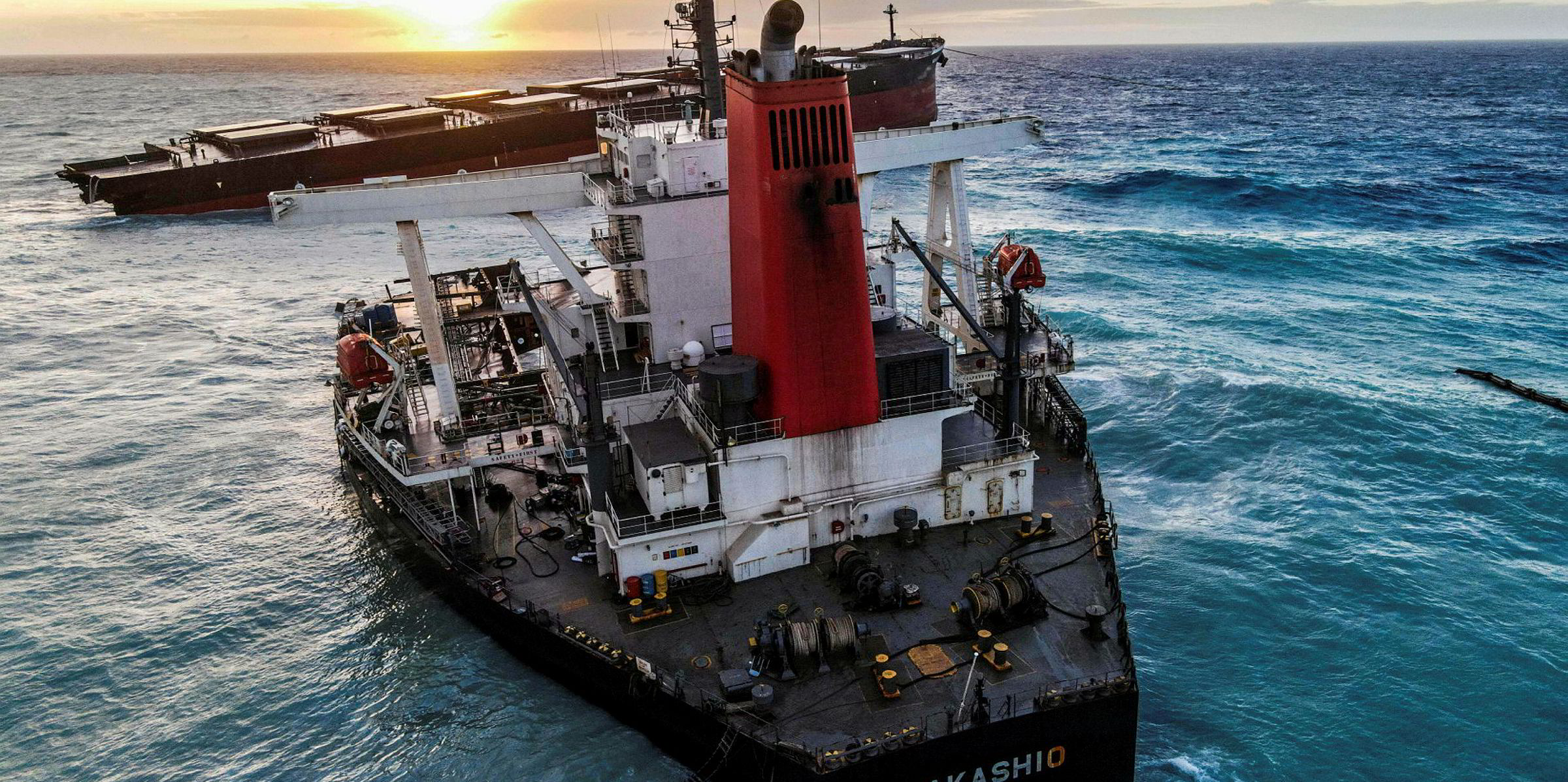Mauritius faces a major shortfall in compensation payouts for the Wakashio fuel spill unless governments and insurers can find a way around legal problems thrown up by the international liability conventions.
In this case, as the ship is a bulker, the shipowner’s liability for pollution is covered by the 2001 International Convention on Civil Liability for Bunker Oil Pollution Damage, to which Mauritius is a signatory.
But the compensation limits under the Bunker Convention are decided under the 1976 Convention on Limitation of Liability for Maritime Claims, which, for the 203,000-dwt Wakashio (built 2007), would limit shipowner Nagashiki Shipping's liability to just $18m.
It appears that Mauritius has not yet adopted the 1996 Protocol to the Limitation Convention, which would have increased its entitlement to compensation to about $66m.
Pristine marine environment
Clyde & Co partner Martin Hall said: “If this is correct, then the lower limit of around $18m would apply, which seems hardly enough to cover the sort of losses that might now be envisaged from the impact of some 1,000 tonnes of heavy fuel oil on the pristine ecological environment of Mauritius.”

Nagashiki Shipping's liability limitation has not been set in the courts yet.
The United Nations Conference on Trade and Development recently suggested Mauritius could be entitled to the full $66m cover.
But there is doubt whether even the revised limitation limits under the 1996 Protocol would be anywhere near adequate in Mauritius' case.
Advice not taken
One shipowner source told TradeWinds: “Mauritius has only got itself to blame for this really. Everyone points the finger at the shipowner, but the IMO [International Maritime Organization] has made technical advice available to developing countries to help them keep pace with the international conventions. But it appears that this has not been taken up.”
As TradeWinds reported last week, there will be a lot of political pressure on Japan — home of both the ship’s owner and operator — to compensate for the damage caused, despite the limitation of liability set by international conventions.
Japan does not want to be held up as the latest developed country to pollute the Third World and walk away from its responsibilities.
There are also funds available through the International Group of P&I Clubs’ claims pooling system and its reinsurance arrangements to meet pollution claims running into billions of dollars.
A large proportion of the estimated $500m total clean-up bill will not be limited under the Bunker Convention.
The biggest claims are likely to be the salvage, emergency response and wreck-removal expenses, which are a pure shipowner cost and not covered by the Limitation Convention.
These will be met in the first instance by the Japan P&I Club, with claims of more than $10m shared with the other International Group members and the reinsurance cover providers.
However, it is the pollution and third-party compensation claims that will be affected by the limitation of liability.
The problem is that if these compensation claims eat into the International Group’s reinsurance cover, which kicks in above $100m, it remains uncertain whether the reinsurers can pay out.
One insurance source said: “Reinsurers provide cover on the basis that claims will be handled through the limitation of liability conventions. If they are asked to pay out on figures that exceed the limitation amount for a one-off case, it runs the risk of breaking the terms of the cover. It will also take away the legal certainty reinsurers need to provide cover to the shipping industry in the future.”
The other issue is that the International Group has fought long and hard to preserve shipowners' limitation of liability, most notably through a long-running battle with the government of Spain over the sinking of the 81,000-dwt Prestige (built 1976) in 2002.
One option could be for the IMO to help Mauritius retrospectively ratify and apply the 1996 Protocol to at least access the $66m limitation.
The other option is for the government of Mauritius to sue Nagashiki Shipping, or attempt to recover funds from the vessel’s charterer — Mitsui OSK Lines — which, as a Tokyo Stock Exchange-quoted company and one of the world’s largest shipping outfits, has deeper financial resources.
Proving wilful negligence
Mauritius will have to prove wilful negligence on the part of the ship’s crew, which might explain why tales of partying and diversion to secure wifi access have been leaked to the local press.
Clyde & Co’s Hall said Mauritius would have to prove the loss resulted from the “owner’s personal act or omission, committed with the intent to cause such loss, or recklessly and with knowledge that such loss would probably result”.
However, he said: “This is a very difficult burden to discharge.”






